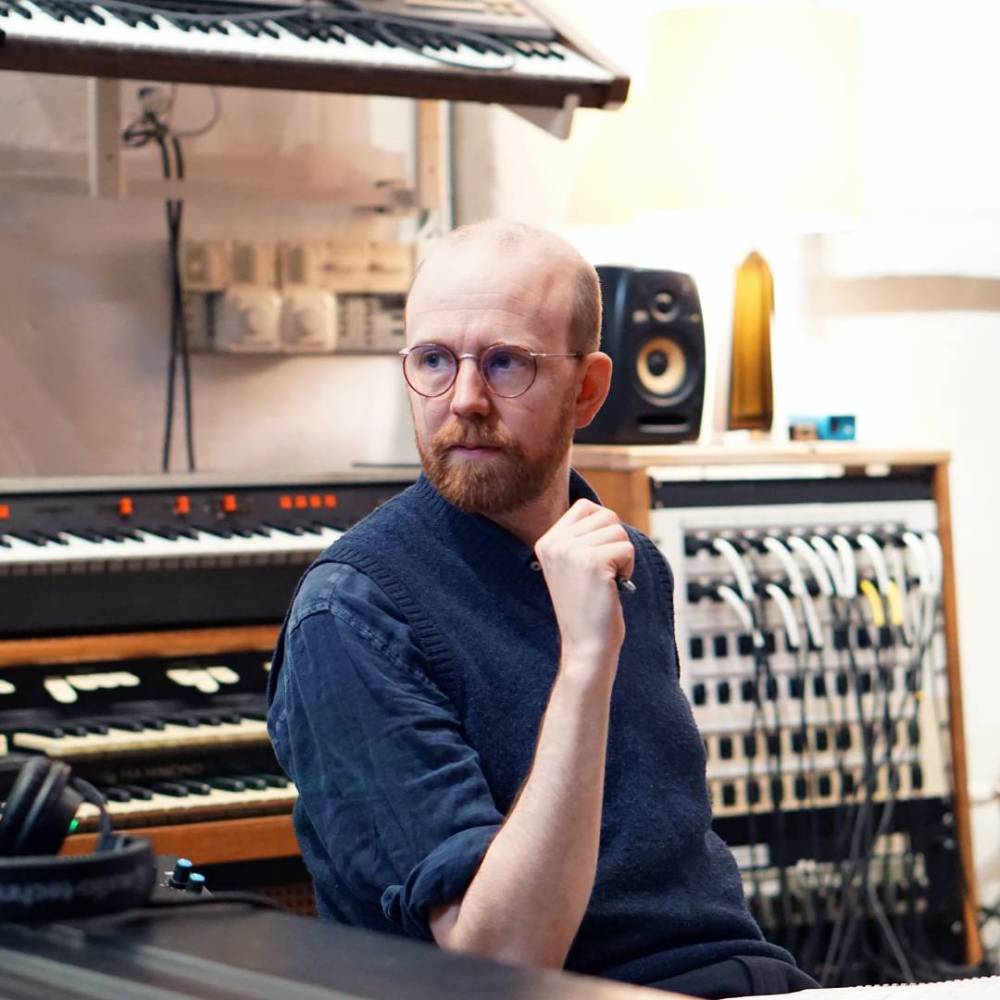Image via John Henriksson
Miguel Otárola was not prepared for a Twins playoff run happening the month before he gets married.
At the age most kids are starting tee ball or piano lessons, Sven Wunder was down in the basement of his childhood home in Stockholm watching jazz saxophonist Lee Konitz jam out with his dad on the drums.
“They always rehearsed down in our basement when I was growing up,” says Wunder – whose real name is Joel Danell – of the world-renowned musicians his dad would bring over to play. “It was a very nice way to get in contact with music at an early age.”
They’re experiences he wouldn’t take for granted. At 39, he’s a composer who writes soundtracks for film and TV from his Stockholm studio. As Sven Wunder – an artist name which he says is not based on Stevie Wonder, by the way – he produces rich, decadent instrumental music that spans styles from across the globe.
His albums have explored traditional Turkish music (2019’s Eastern Flowers), Japanese jazz (2020’s Wabi Sabi) and lush movie soundtracks (2021’s Natura Morta). His newest, Late Again, released last week on Piano Piano Records, ventures into gentle ballads, lush hip-hop instrumentals and ballroom jazz. It’s the kind of music that adds another dimension to your life, whether you’re writing emails at work, laying on the couch or having your friends over for dinner.
For Wunder, it all stems from his deep love for and knowledge of jazz, classical and folk. He has a particular fondness for movie soundtracks by Italian composers from the 1960s, as well as the “library music” that was used in the mid-20th century for television, radio and other visual mediums.
Music like this isn’t exactly rare, and acts like Thievery Corporation and Khruangbin have reached stardom with their own takes on non-Western grooves. But Wunder’s oeuvre stands apart from that of his contemporaries: he places more attention on the fidelity of a recording and the performances of his musicians. Like Italian director Luca Guadagnino, whose Call Me By Your Name indulged in the quaint, rustic landscapes of his home country, Wunder sets out to create a complete and lived-in picture, lavish in color, texture and history.
Late Again fine-tunes his compositions even more, showcasing simple and elegant melodies that sound as if they’ve existed for decades. “Take A Break” begins as a straightforward hip-hop beat but blossoms into seductive lounge led by scintillating strings. The album’s middle section has several prominent flute solos. Backing horns, a vocal choir and featherweight drums gives standout “Stars Align” the lively sway of an Arthur Verocai arrangement.
“Stellar Plates” and “Asterism Waltz” wind the album down to starry jazz lullabies. The former builds around a wondrous piano motif while the latter features a twinkling guitar melody in the vein of Grant Green and Wes Montgomery. The titular closing track is a piano soliloquy similar to the omnipotent soundtrack work of the late Ryuichi Sakamoto. In this graceful final third, Late Again transcends to the level of Wunder’s own musical influences. Listening to it, you can feel the worries and responsibilities lifting off your shoulders and evaporating into the night sky.
“The texture of a recording is the first thing I hear when I try to find new songs,” Wunder says. “You can hear it in just one second, if I’m going to like the song or not. For me, that’s very important.”
When Wunder and I spoke over Zoom, Late Again was still weeks from release. In it, he talks about his upbringing, seasonal favorites and the virtues of easy listening music. Our interview, edited and condensed for your reading pleasure on POW is below.
It was my dad who put me in music school. Here in Sweden, when you’re 8 years old you can choose an instrument and start to study it at school. He was like, “He wants to study bass.” Because then we could be a rhythm section [together]. [Laughs.] These days, I don’t really play it that much.

